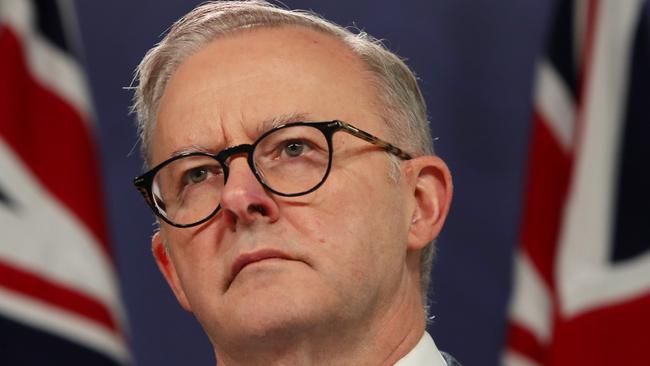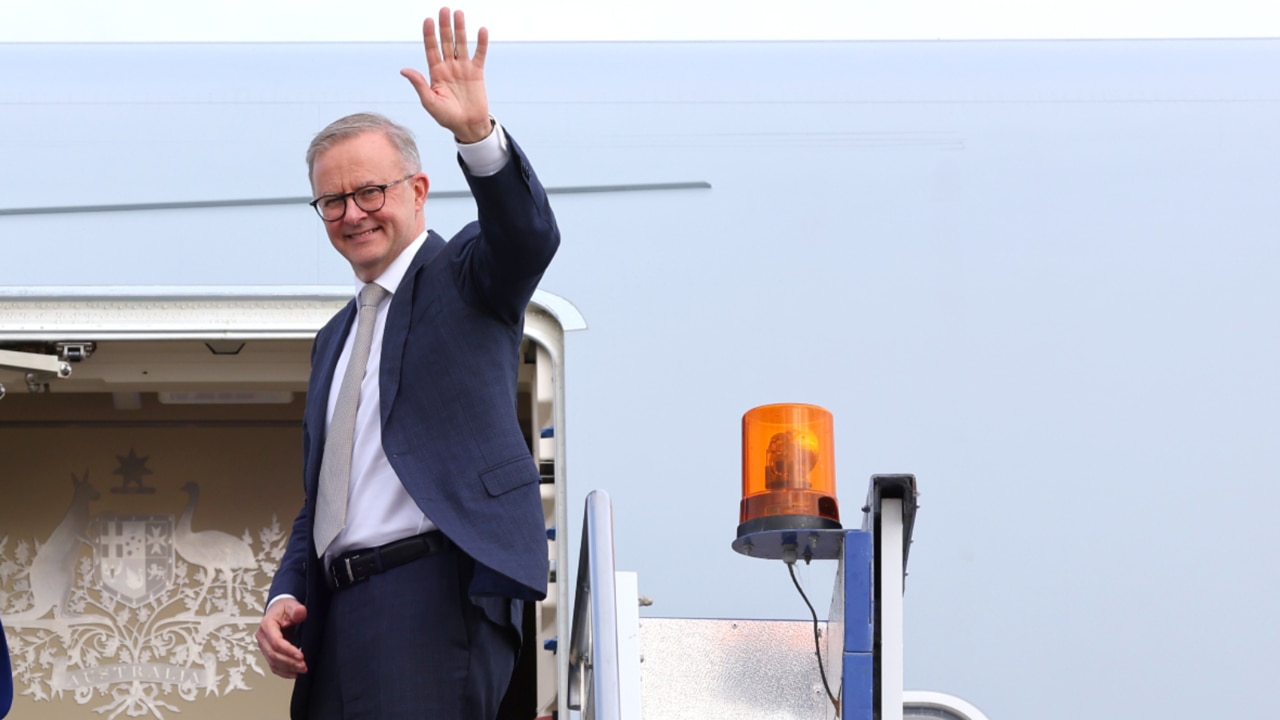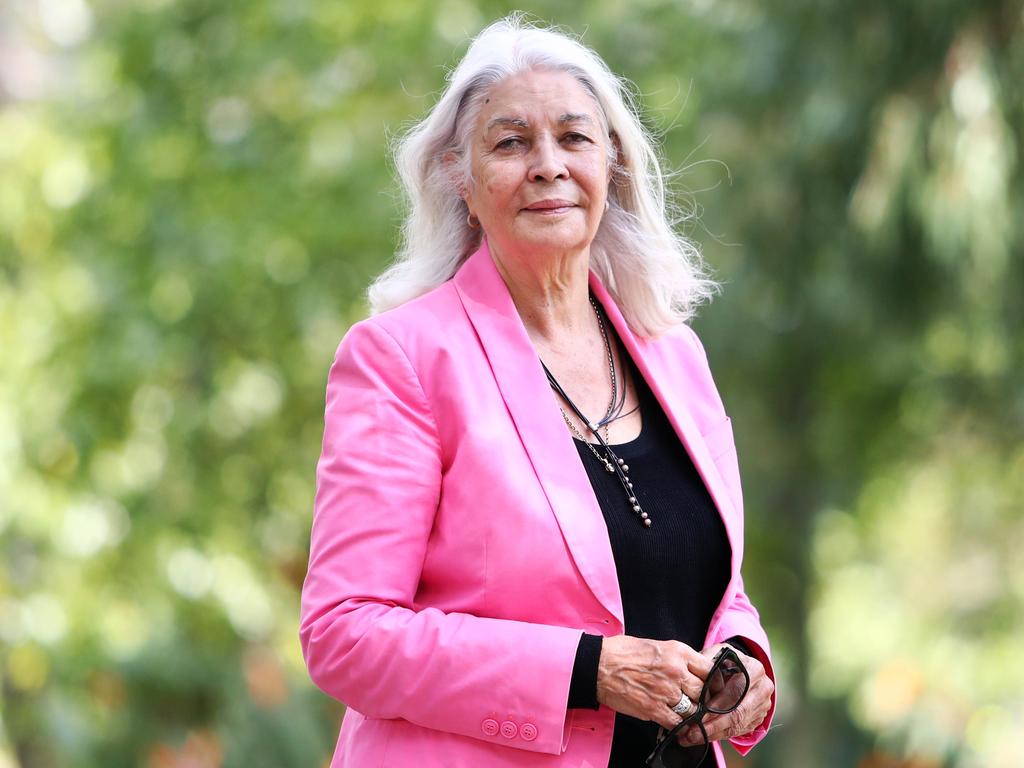Anthony Albanese’s regional climate push
Anthony Albanese has pledged to deepen climate co-operation and triple global investment in renewables by 2050.

Anthony Albanese has pledged Australia is “ready to do our part” to help achieve a net-zero world, promising to deepen co-operation with Pacific Island and Southeast Asian nations and triple global investment in renewables by 2050.
The Prime Minister will say that striking new climate-change partnerships with Indo-Pacific nations will be a priority for his government in a speech to the Sydney Energy Forum on Tuesday, declaring Australia and the region must “take this journey together”.
Mr Albanese will then fly to Fiji on Wednesday where he will move to reset relations with Australia’s nearest neighbours at the Pacific Islands Forum after lifting the nation’s climate ambition by adopting a 43 per cent 2030 emissions reduction target.
With Pacific Island leaders expected to push for further increases to Australia’s target, Mr Albanese will say his government wanted a regional response to climate change to help “unleash investment and innovation in clean energy at a scale we have never seen before”.
He will also use the forum to raise support for a UN climate summit to be hosted in Australia, declaring the country under Labor would “once again be a trusted global partner on climate action”.
“We will deepen our engagement with Southeast Asia and ASEAN as a priority,” Mr Albanese said in a draft version of his speech.
“I am ambitious about what we can achieve together.”
Mr Albanese’s comments came as Chinese Foreign Minister Wang Yi told diplomats at the secretariat of the Association of Southeast Asian Nations in Jakarta that the region should be insulated from “geopolitical calculations and the trap of the law of the jungle”.
In a criticism of the strategic approach taken by the US and Australia, Mr Wang said on Monday there were different trends in the Asia Pacific – one that advocated “open regionalism through multilateralism” and a second that promoted “the obsolete Cold War mentality and closed group politics that classifies countries in the region based on their values”.
He pushed for China and ASEAN to work more closely to “uphold true regional co-operation” and “reject the kind of fake regional co-operation” that sought to take sides by targeting some nations – a swipe at the Quad partnership between the US, Japan, India and Australia.
Mr Wang said the Asia Pacific was big enough for all countries to pursue their development, touting close co-operation between China and ASEAN including on trade and infrastructure.
Mr Albanese on Monday flagged he would concentrate on both “national security” and Australia’s “renewed commitment on climate change” at the Pacific forum as he rejected four demands made by China to help reset the relationship.
“Australia doesn’t respond to demands. We respond to our own national interest,” he said.
Mr Albanese has previously signalled his intention to raise concerns with Pacific leaders at the forum about the new security deal inked between the Solomon Islands and Beijing as well as China’s approach to the region amid concerns it could lead to a new naval base being established 2000km from the Australian coast.
In his speech on Tuesday, Mr Albanese will say that greater Australian co-operation with Pacific Island and Southeast Asian nations is critical to more than tripling global investment in renewables by 2050.

“If we empower businesses, scientists, engineers, workers, and the private sector to work together across our region, we can unleash investment and innovation in clean energy at a scale we have never seen before,” he says.
“Together, we can ensure better access to affordable, reliable and secure clean energy right across the Indo-Pacific, as we move to a net-zero world.
“Our nation has a long, proud history as an established and reputable global energy exporter.
“We have an abundance of the rare earths and critical minerals that will underpin new energy economies, such as aluminium, lithium, copper, cobalt and nickel. And through our research and engineering endeavours we will continue to get the best of Australian ingenuity out into the global market.”
Foreign Minister Penny Wong and Pacific Minister Pat Conroy left for Fiji on Monday to attend the forum, which is expected to cover issues of security, climate change and unity in the region.
On Monday, Kiribati made the shock announcement that it was pulling out of the forum after concerns Micronesian nations weren’t having their voices heard.
Mr Albanese said division between participating countries was “unfortunate”.
“There have been some divisions in the past, from time to time, that will occur,” he said. “It’s unfortunate, the decision Kiribati has made.”
Within hours of Mr Albanese’s comments, Labor announced a $2m funding package for Kiribati to help the country maintain drinking water supply in the wake of its drought.
The package will cover the installation of a desalination plant, delivery of generators and an offer of maintenance services, in a joint contribution with New Zealand.
While Pacific Island leaders have agreed Labor’s updated climate target was a step forwards, they have stressed there is “still more to do”.
Former Kiribati president Anote Tong said Australia “had to be clear” about how it would reach that goal and be open to discussing going further on its target.
“Australia is way, way behind and lagging on climate action,” he told The Australian. “There have got to be legitimate commitments that would really have an impact.”
It follows a similar message put to the Albanese government by other former leaders, such as former Tuvalu prime minister Enele Sopoaga, who said the 43 per cent target needed to “be a floor and not a ceiling”.
Australian National University Department of Pacific Affairs fellow Graeme Smith said Labor would “not get a free pass” despite committing to more ambitious climate change than the Coalition.
A number of Pacific Island leaders and groups have called for medium-term targets of closer to 75 per cent to adequately address concerns of the region.






To join the conversation, please log in. Don't have an account? Register
Join the conversation, you are commenting as Logout